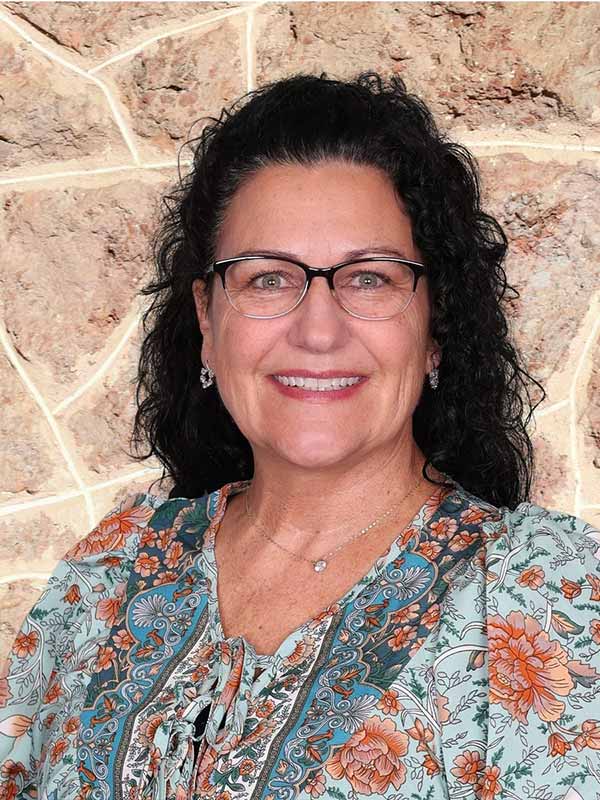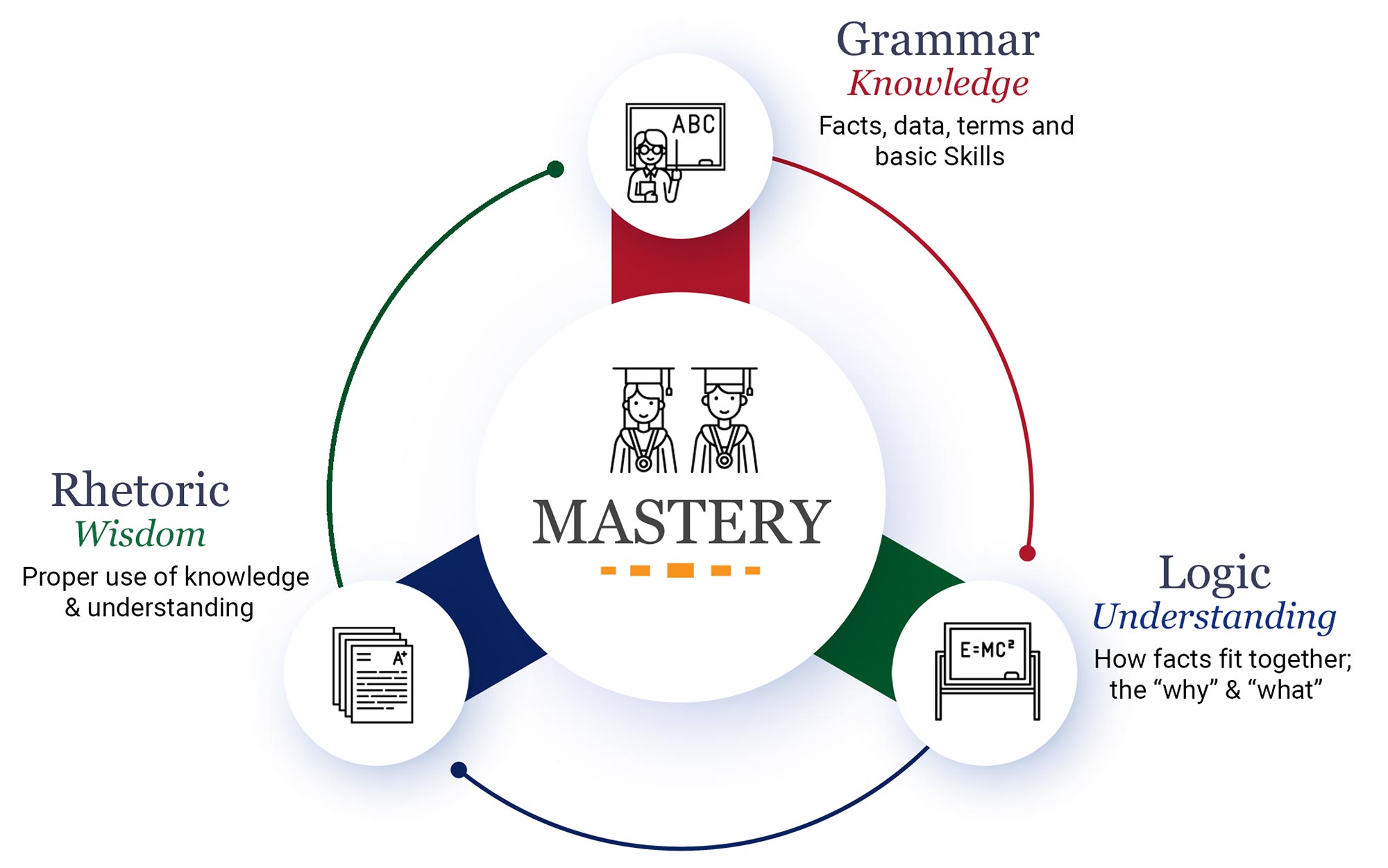
SANDI FRANCIS
Humanities
Quicklinks
‘I am come that they might have life, and that they might have it more abundantly – to live life in all its fullness.’ John 10:10
The trivium includes grammar, logic, and rhetoric and forms the basis of GFA’s education. The trivium simply reflects what most people intuit naturally: first graders learn differently than eleventh graders, and a school’s approach to education should reflect that.
The trivium begins with the Grammar Stage. Young students love to memorize things. They do it without even trying. They can take just about anything and turn it into a song or rhyme, and in so doing it becomes part of their learned experience; if you still know what year “Columbus sailed the ocean blue” or the pitches of the major music scale because “a Doe is a deer, a female deer…” then you have experienced this dynamic first hand. Grammar students also generally love to learn and love to show adults how much they know. In the Grammar Stage students spend a good portion of their time memorizing and reciting a wide range of information that will serve as the foundation for their rest of their lives: multiplication tables and fact families; word definitions and phonemes; long division and multiplications algorithms; history timelines and science taxonomies; Bible verses, hymn lyrics, and catechism questions and answers; and more.
The next phase of the trivium is the Logic Stage. Grammar students rarely ask “why” questions, whereas typically with the onset of puberty and corresponding developments in the brain, Logic students start asking bigger, deeper “why” questions. They start thinking critically about the world and their place in it, so classical Christian education prioritizes the philosophical branch of Logic, or the basic art of thinking well. Logic students learn the importance of things like defining your terms, using precise language in communication, and how to construct their own valid and sound argument as well as how to analyze someone else’s argument. They practice the art of recognizing errors in reasoning, called “fallacies,” in both their own arguments as well as in those they encounter in culture or in conversation. Students develop the habit of thinking critically about the world they encounter and the ideas and assertions the world is constantly throwing at them.
The final phase of the trivium is the Rhetoric Stage. As students mature into young adults, they become very self-aware: they worry about the way the world perceives them, particularly their peer group. Classical Christian education tries to harness this newly developed self-awareness by training Rhetoric students how to be perceived well. In the Rhetoric stage students learn the art of speaking well, what the ancients and medievals called rhetoric. This is where all the work of the Grammar and Logic phases comes together to produce a thoughtful and articulate person who can make an impact for the kingdom of God by communicating persuasively, powerfully, and beautifully in whatever vocation God calls them to. One of our goals of a graduate is to train students who possess a masterful command of language. Students fully grasp the power of language, they gain the confidence and ability to recognize when someone is using that power against them, and they can harness that power and turn it back around in a beautiful, persuasive, and loving way for the glory of God.
The trivium ultimately provides for students the necessary tools of learning. This is an important distinction between classical Christian education and most modern forms of education: instead of treating a student’s eternal soul like a database to be crammed with as much information as possible as fast as possible, classical Christian education seeks to form the soul of a student with the tools they need to learn – a vision for the world founded on the Word of God, a command of language and vocabulary, the ability to read and comprehend difficult texts, draw abstractions from those texts and make connections to others, to think critically and logically through complex problems, and more – so that they can go out into the world and excel at whatever vocation God calls them to. Whether you’re a doctor trying to diagnose a difficult set of symptoms, a rancher trying to negotiate the best sale on your beef, or a metal fabricator trying to understand the needs of your customer, the trivium is designed to provide you with the basic building blocks needed for you to master whatever God places before you.


